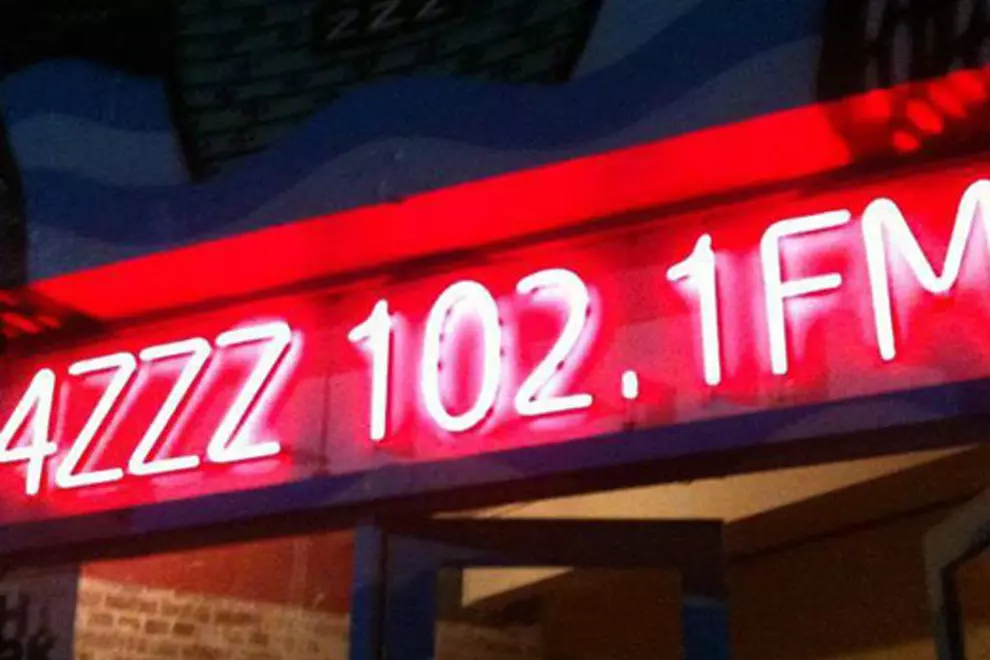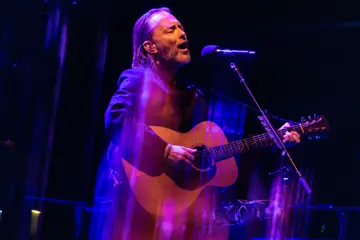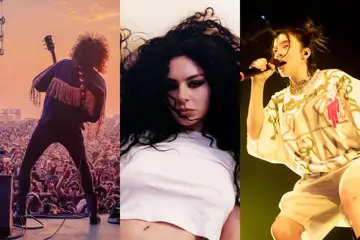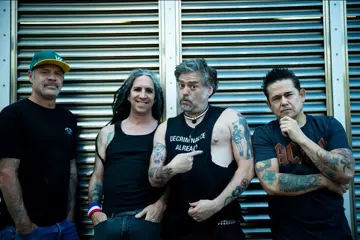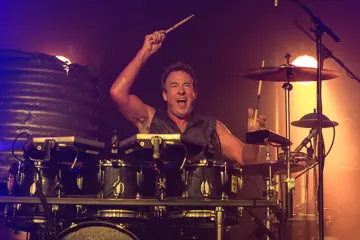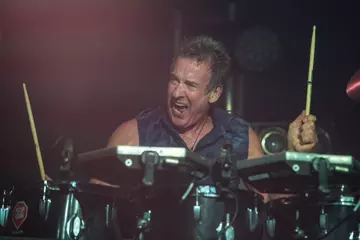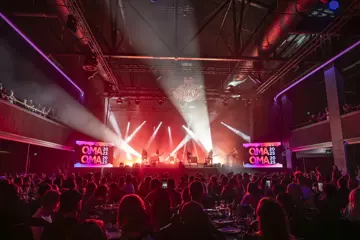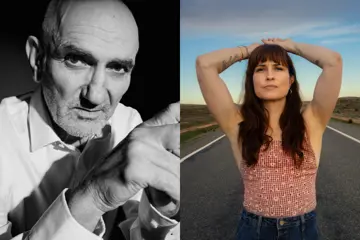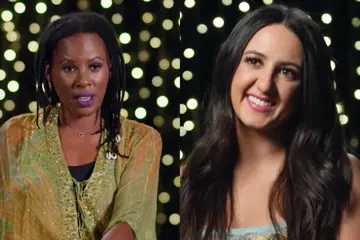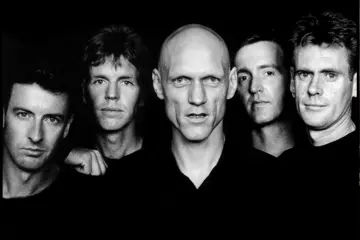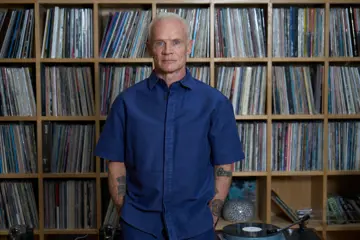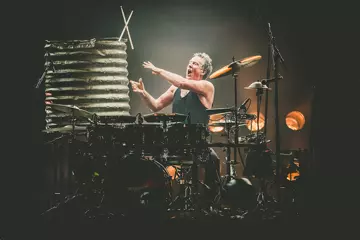When Australia’s first community radio station, 4ZZZ, made its inaugural broadcast on December 8, 1975, from its ramshackle studio in the University of Queensland student union building - with DJ John Woods introducing the station, then blasting out The Who’s Won’t Get Fooled Again - Brisbane was a very different city to today.
Back then, ultra-conservative Premier Joh Bjelke-Petersen ruled the roost with an iron fist, his authoritarian rule virtually turning Queensland into a police state with the constabulary indiscriminately wielded against street protesters, and any dissenting voices or ‘undesirables’ harassed into submission with virtually zero accountability.
Amidst this oppressive backdrop, a group of like-minded activists, seeking a voice against what they perceived as systemic injustice, took advantage of a recent initiative by the Whitlam Federal Government to extend radio broadcasting around the country.
Racing against the clock as the Whitlam regime limped inexorably towards “The Dismissal”, things gradually fell into place until suddenly they were in control of the first radio station to broadcast in FM and stereo in Queensland, as well as becoming the country’s first ever stereo rock music station.
Don't miss a beat with our FREE daily newsletter
Importantly, as well as providing their radical alternative to mainstream news and taking their place at the vanguard of Queensland counter-culture - famously in the early-‘80s breakfast announcers would regularly call Bjelke-Petersen at his Kingaroy peanut farm and air his indignant protestations at being aroused from his slumber - 4ZZZ soon also became a bastion of the Brisbane independent music scene, championing generations of underground and alternative artists from both Australia and overseas, always maintaining a strong local focus.
Over the 50-year duration that the station has been a core pillar of the Brisbane music scene, the city itself has flourished, shedding its former tag of a ‘cultural backwater’ and stepping into the limelight as a bona fide world city, and 4ZZZ has grown and thrived alongside it.
Due to decades of hard work, after being summarily kicked off the UQ campus in 1988 then paying full commercial rent for six years in Toowong, they now own their own building - the former Communist Party headquarters in Fortitude Valley - an incredible feat given that 4ZZZ has survived this whole time on the smell of an oily rag, taking little in the way of government handouts and subsisting through its own fundraising efforts in the form of subscriptions, sponsorships and promotions.
To celebrate this incredible decades-long triumph over adversity, 4ZZZ is marking its 50th anniversary by embarking on a four-month spree of gigs, panel discussions, exhibitions and live broadcasts.
Bands from vastly disparate scenes and time periods are coming together - some reforming for the first time in years - to honour the amazing role that the station has played in the evolution of the independent music and media landscape in both Queensland and Australia, as well as the countless volunteers and supporters whose efforts made it all possible.
Long-term 4ZZZ volunteer and announcer Heather Anderson is releasing her second book, People Powered Radio: Fifty Years Of Australian Community Radio Station 4ZZZ, amidst the milestone celebrations, and found that the research for this labour of love offered a unique perspective on the cultural need for a dissenting voice in the early days of the station.
“It was the Joh Bjelke-Petersen era, and it's hard to properly understand or convey how oppressive it was in the ten years or so leading up to 4ZZZ starting,” Anderson explains. “I’ve heard stories about police handing out white t-shirts to people to get changed into, even though they hadn’t done anything wrong, so when they weren’t arresting people, they were like, ‘Here, take that shit off, put this on’.
“More stories of bouncers at Festival Hall ensuring that people sat down for the whole duration of concerts, which I think Elvis Costello was one of the first artists to break that and say, ‘We're going to leave unless you stop that’.
“Even prior to the establishment of 4ZZZ, that idea of the moral panic around rock’n’roll and around non-commercial music was really prevalent, and then the protest movements against the Vietnam War conscriptions and the responses to that being to ban marches - there was so much going on at the time. And then the media was also all tied up, and there was no alternative voices in the media - that really was the impetus for 4ZZZ to first start.
"My understanding is that, especially after the Springbok protests against the South African football team in 1971, there was so little accurate coverage of the police brutality against those protesters that that was like the final straw for the activists and the students who were, like, ‘Okay, radio is the way to go. Pirate radio is not permanent, so we need to do something more meaningful than that.’
“And they basically started the wheels turning to start the whole of the community radio sector in the country because the birth of 4ZZZ coincides with the birth of community radio generally. So, the same people that were lobbying for the 4ZZZ licence were also lobbying for the sector in general. It was a big time.”
As well as being a long-term co-host of the enduring Dykes on Mykes program, Ruth Gardner is today the Chairperson of the 4ZZZ board, who oversee the station’s leadership, strategy and compliance, and she too is acutely aware of the station’s importance to Brisbane’s cultural fabric over the years.
“In the early days, there was definitely the political element or what I’d call the ‘activism’ of the station,” Gardner reflects. “It was born out of the extreme conservative politics of the day and the Joh Bjelke-Petersen government, and from that time on, our activism has been a really important part of where we're positioned in the media landscape.
“On Triple Z, you can find voices and stories of people that might not be heard otherwise through more mainstream media networks, and also the music of bands and genres that might not get a look in on other networks, whether they be commercial or the national broadcaster.
“So we've really been ‘for the people, by the people’ for so long, and that really strong commitment to engagement and inclusion has, I think, contributed to 4ZZZ creating a culture that makes people feel continuously engaged and represented.”
Amidst the digital age, there’s constant rumblings about the diminishing role of radio in society, yet 4ZZZ feels as imperative as ever on the city’s media landscape.
“I guess it's something we talk about and we have as part of our strategic plan, to continually try and ruminate over the role of the FM frequency in the modern day,” Gardner continues. “We need to ask ourselves, 'Are we still just a radio station? Is there more for us in the landscape? How long does social media have to go?’ All of those questions come up.
“I think we tend to be engaging young people - it’s part of our core purpose. It's usually through music and journalism, and we're really grateful to still have a very strong youth engagement despite what some people may say about the FM frequency.
“If vinyl can come back around, so can radio! And we're doing it through continuing to engage young emerging artists as well as people interested in journalism, and also people interested in socio-cultural issues as well.”
Jack McDonnell started his tenure at 4ZZZ as a volunteer in the newsroom before graduating to working on digital programs and co-hosting his own on-air show, but it’s his current role as Station Manager, which has opened his eyes to the importance of the station on a broader level.
“I think the 50th is a massive opportunity for us to recognise what an incredible achievement making it this far is, and what an incredible role community radio plays in our city and where it stands in the country and in the world,” he offers.
“4ZZZ has a really fascinating history in how it was built up and how it started and and we need to honour that history of where it came from while also recognising where it is now, acknowledging that incredible history, recognising the work that it's doing now and kind of asking ourselves, ‘Where do we go from here? What's our role? How do we best serve our community?’
“Over the years that responsibility has changed in so many different ways, as has what the station represents and what it means to be Triple Z. And it's just a great opportunity to, you know, think about our history, what we've done, but also where we're heading and how we link those two things together - it’s a really fun time to be at the station."
McDonnell believes that while the onus is on 4ZZZ to adapt to keep up with the times and reflect the prevailing values of society, it’s also about meeting the needs of another group of key stakeholders.
“I think it's also really important to adapt to keep up with your audience,” he continues. “You know, what are the issues that maybe weren’t really important 20 years ago that have actually come a bit more into line with what should be happening, or what are the issues that are really important that weren't maybe looked at or talked about enough back then that we’re doing our best to address in the now. I think that's where you have to really keep adapting and going with the times, and also responding to needs in the community.
“To use an example, The Home Show started a couple of years ago because there was recognition that there's a housing problem - tenancy issues that are rife throughout the country - so how do you respond to that?
“Well, you create a show called The Home Show, which talks about tenancy issues. It talks about bringing back accommodation notices and those things that used to happen, bringing it back to keep us contemporary and modern and responding to the current issues. And I think that's what you're constantly doing.
“You're constantly asking, ‘What are the communities that we need to engage with better or that we're not engaging with enough, and how do we talk about their issues and promote what's happening in their communities?’ I think that's what's evolved and changed over time - and it will continue to evolve - and that's great.”
Whilst working on People Powered Radio over the last few years, Anderson came to realise - via a better understanding of the Joint Effort fundraisers that 4ZZZ conducted for many moons - that bettering the station’s relationship with the community has long been part of the overall agenda.
“It's interesting because probably the most fascinating thing that I learned doing the research for the book about the history of the station was the origins of the Joint Effort title,” the author smiles. “I’d always thought that clearly the name was on one level a nod towards a marijuana joint, but I always wondered what the ‘Joint Effort’ was: was it between 4ZZZ and the uni? Well, that didn’t hold water, because they had Joint Efforts at Cloudland.
“And it turns out that the Joint Effort was between 4ZZZ and local music, because when 4ZZZ first started, it didn't have a relationship with local music—it didn't have a relationship with anything. And I just found it really hard to imagine that there was a time when 4ZZZ was, like, ‘We're going to make a joint effort to combine the community radio station with the local music scene.’
"So that's made me think about things in a completely different way, to think that at the start 4ZZZ and the Brisbane music scene were not connected at all, compared to now, where if you're a Brisbane band, you're being played on 4ZZZ. 85 per cent of the Hot 100 countdown this year was South-East Queensland bands - it’s so intrinsic that it's really hard to imagine that there needed to be an effort made at the start for that connection.”
One musician who can vouch for the importance that 4ZZZ plays in the life of a Brisbane musician is Tim Steward, who blew into town from Townsville back in ’89 with his then-current band The Madmen (who within a couple of years had morphed into Screamfeeder).
The frontman attests that they likely wouldn’t have survived the transition had it not been for the support from community radio stalwarts such as Brentyn “Rollo” Rollason (from revered ska-punks Blowhard), a towering figure from the local punk community who acted as a conduit between his scene and the station.
“I remember when we first came to Brisbane, we hooked up with Rollo and the punk scene initially, and they were very tied into Triple Z,” Steward recalls. “Because we were associated with 4TTT in Townsville, it was almost like we had a small free ticket into the scene in Brisbane.
“We played at venues which were presented by 4ZZZ like St. Paul's Tavern, The Backstage and all these little places. It was almost like a non-formal little welcoming and an acceptance into Brisbane on behalf of the station. It was all very understated, and I don't know how to properly articulate how important it was.
“It kind of just happened in this way that eased you into the scene and helped you without anyone blowing their trumpet about it, but it was just like such a grassroots thing that the Zeds’ mission really was to just play music - and play Queensland music - and help bands and help the scene. It all just happened so smoothly and without any pulling or pushing or scratching; it was kind of understated but super-helpful.
“And so as we grew as a band in Brisbane, without us asking them to, they were always there supporting us, playing our music. We'd always either get reached out to for an interview, or we could call up and get an interview if we had something happening.”
“It's funny because in the early days, thinking back now, it felt like 4ZZZ was this sort of super staunch hardcore left-wing kind of like barricaded organisation - which I guess it kind of had to be in those early days to some degree - and it was almost a little scary going in there sometimes, but not for any reason other than our own stupid preconceptions about what it might be like.
“So we'd go in there and do live to airs and things like that - which was kind of fun and crazy - and interviews, and we’d do gigs and they were always there in just a very nice way. And always just a very helpful, natural, organic, normal kind of way, you know?”
Screamfeeder are playing at the massive Zed 50 gig which is a key plank of the 50th birthday celebrations - with a slew of bands with links to the station and the city such as The Saints ’73-’78, Regurgitator, Tropical Fuck Storm, Full Flower Moon Band, Butterfingers and more joining forces for an all-day bash in Roma St Parklands, the site of many of the early 4ZZZ Market Days which is what the event is vaguely emulating.
Throughout much of the ‘90s and into the mid-‘00s 4ZZZ held music festivals to raise funds for the station and bring the tribe together, not only a rite of passage for Brisbane bands - all of our massive ‘90s exports like Powderfinger, Custard, Regurgitator and Screamfeeder graced the bills at one point, as did Bris-bands of all genres and persuasions - but also graced by high quality interstate interlopers such as You Am I, Something For Kate, Spiderbait, Grinspoon, Smudge, The Celibate Rifles, Frenzal Rhomb, Hard-Ons and countless more who helped soundtrack the gatherings.
“Two kind of big memories stand out,” Steward offers as he reflects on past Market Days. “One is just the general vibe of the early ones in the Albert Park amphitheatre, I just remember it was just always so loose, but in all the greatest ways. It was just anything goes, like you could go along and spread out a blanket and fire up a joint, or you could play some Frisbee, jump around to the music or do whatever you want, and it was always cool.
“And the concept of that in the middle of Brisbane city is now a bit weird. It was just such a naive and innocent time, I suppose, and so free and so exciting and unpredictable for that reason.
“The other thing that I always remember as soon as anyone mentions Market Day is the [1995 University of Queensland] car park one. On the day of the event, it was announced that it was moving venues because of the weather - I remember we all heard about it, and we were playing, and we headed along, and it was in this crazy multi-story car park, and the stage was like a whole car park level above other people.
“And it was again that sort of crazy free sort of ‘anything goes’ sort of atmosphere, but this time it was tinged with a bit of like, ‘Holy fuck, this is a little bit crazy and dangerous and a bit heavy almost’. Like, there was a lot of drugs there. I can't remember if there was a heavy police or security presence, but it was super loose and people stage diving on these concrete floors and just kids everywhere - it was kind of anarchic, you know what I mean? And it worked. I don't remember there being any big issues or problems or people getting hurt, but it was potentially insane, you know?
“And the fact that Zed 50 is happening in those same Parklands - I mean, it's probably not exactly the same spot - but that's a pretty lovely thing as well. And I'm sure the atmosphere will be reminiscent of those early crazy get-togethers.”
One person who can trace his relationship with 4ZZZ back to one such Market Day is Justin Law, who’s currently working on the promo team for the 50th birthday celebrations as well as orchestrating the return of the Beerstock event, another massive fundraiser from yesteryear.
Law came through the ranks of the fertile Brisbane punk scene - a member of numerous great bands such as Community Cervix, as well as a long-term announcer on the station - and he stumbled upon what would become his second home pretty much by accident.
“It was actually Market Day at Musgrave Park in ’95 that pretty much introduced me to Triple Z,” he smiles. “My mate took me along, I think it was five bucks because I wasn't a subscriber at the time - and he got in for free because he was a subscriber - but I was, like, ‘Oh, wow, this is crazy! Look how awesome this is!’
“It was an incredible day at Musgrave Park. I just had the greatest time and met so many people and saw all these amazing bands, and it wasn't long after that, but I was volunteering at the front desk, and here we are.
“4ZZZ is such an amazing little community in its own right, with so many different people all working towards the same thing, which is all about creating voices for those who don't normally have a voice. I've got so many lifelong friends now from my time at 4ZZZ, who I doubt I would have ever crossed paths with if it wasn’t [for my] time at the station, people from totally different scenes.
“These days, we also connect through Instagram and social media stuff, and I see what they're up to, and I just think, ‘Wow, you're in a totally different fucking world to me, but we're really good mates’. And that probably would never have happened if it wasn't for the Zeds.
“I’m glad that there’s a heap of gigs happening for the celebration, as I think the big thing with those gigs is that it's a tangible way for people to connect with 4ZZZ physically, without having to become an announcer or work the front desk - someone can go to a Triple Z gig, feel like they're a part of what 4ZZZ is about and also just enjoy themselves and connect with people from the station.
“I think that's probably more important than the funds raised by the Triple Z gigs, just to actually foster that connection with the community and provide a way for people to interact with the station physically.”
Law is stoked to be reviving the Beerstock brand - putting on a massive concert featuring some huge Brisbane punk names from the past, such as John Lee Spider, Knaw and Mouthguard, alongside some more modern contemporaries such as Being Jane Lane, Burnt Trash and Glycereens - in the process paying homage to the scene stalwarts of yesteryear.
“I guess the idea behind it returning as part of the 50th was that we’re trying to represent stuff from all eras of Triple Z, from now all the way back,” he muses. “I just wanted to find something from the era that I was involved in that I thought could encapsulate a lot of that into one thing, and Beerstock was the event that just stuck out.
“I wasn't involved in the original Beerstocks organising-wise, but a lot of my bands played at those original Beerstocks. And some of my bands' probably our first gigs were at those Beerstocks, and the opportunities it provided us, and so many bands just really were a big part of why people like myself gravitated to the station. There was almost a whole generation of 4ZZZ people that came out of that whole Club Splurt scene of gigs organised by Rollo that was connected to Triple Z, so I thought that made it perfect for what I wanted to achieve.
“I contacted the original founders of Beerstock, which was Adam and Scott - they used to do The Beershow on Triple Z, which you might remember - their first one, I think it was in ’97, and there was three bands, including Girls Germs, it was at The Shamrock, possibly. And then they teamed up with Rollo and moved to The Treasury and then The Railway, and that's when it went crazy.
“And then Adam and Scott left the station, and then Rollo continued it on; it evolved into Boozestock, I believe. But there would be, like, 20-something bands, and it would be free. It was just a great platform for so many underground bands to get to play to lots of people and connect with the station, so that's the reason behind choosing that to revive. We’re trying to stay as true to that as possible by connecting with those guys from the past, it’s gonna be pretty wild.”
While some Zedders, such as Rollo, have sadly passed on in the intervening years, Law is still stoked to be able to help build a bridge between past and current generations of Brisbane music lovers.
“I think probably the most important thing about Triple Z is just the bringing together of community and the connections that you make through the station,” he continues. “That stuff's really important, especially with the way things are in the world. Everyone’s struggling - I guess people have always been struggling - but to have something like 4ZZZ where people can feel like they're a part of something bigger and connected to something, I think it’s irreplaceable.
"I know that in my younger years, when I was struggling, 4ZZZ was like a second home for me - I made a lot of good connections, and it really helped me through - and I'm certain it's still doing that for people to this day.
“And I think that's why a lot of minority communities or segregated communities or people who mainstream media selectively decides they're gonna hate on this month find refuge in 4ZZZ, there's a safe place for them and they can generally find a voice there. So that's why I think it's just super important, and it's also super important to celebrate that it's still there.
“I guess another thing too with the 50th, and it's something that a lot of people don't really talk about, is that it’s a pretty amazing achievement to even still be going. When they started at the uni, the uni tried to kick them out and tried to kill Triple Z and then, the Bjelke-Petersen tried to kill Triple Z and the State Police tried to shut down Market Days - Triple Z has just been up against it for so long and just surviving on a shoestring budget and just volunteers and Triple Z still fucking there, and they're all gone. It's just so incredible.
“I just think it's so important that we all celebrate it because it's a win—it’s a win for us all. Anyone who's ever had anything to do with that place, the fact that it's made it 50 years is something that we all should be celebrating. It's such an amazing thing, and I feel very honoured that I get to be involved with the station for this milestone. I'm pretty chuffed.”
For Anderson - who also first emerged from the ranks of Brisbane’s thriving punk scene - the ongoing survival and relevance of 4ZZZ boils down to one thing: community.
“Personally, I believe that the station is still in such good health because it is a community space,” she tells. “Virtually anyone can do their own radio show, they can get an internet radio licence, or they can be a lone wolf radio broadcaster from home.
“But when you do that, you don't meet all of the other people that are doing the same thing, and the beautiful thing at 4ZZZ is that there's such a broad range of different people from all different communities, different ages, that there's that community spirit and that camaraderie that you get from coming together as a group of people.
“It really is more than just a radio station; it's a community hub. But then also I think that Triple Z has spent a lot of time over the last five to ten years working on its rights framework and establishing what its values are and so through things like introducing a Pay The Rent scheme where First Nations subscribers don't pay a fee as a way of recognising that Triple Z occupies stolen land, and building a rights framework that informs the whole way that Triple Z is operated.
“I’ve heard anecdotally that a lot of people, when they subscribe - and they’re given the option to say why they subscribe - say that it's because they believe in the values of 4ZZZ. So it might be like, ‘I don't know, I listen to it, I don't really like the music but that doesn't matter because I care about what 4ZZZ stands for’, and I think that it's established such a strong reputation as having a good ethical framework behind it that people want to get behind it, whether or not they actually care about the actual broadcasting.
“Then I think the other thing as well is that there's been a lot of work done around accessibility. So, trying to create spaces where marginalised people feel comfortable coming, but also thinking about people who have problems with accessibility because of physical needs or mental health needs.
“So, looking at better lighting for neuro-divergent people, looking at ways that people who might not be able to physically get into the building can produce programs remotely, and sort of trying to identify who are the groups that still aren't accessing ZZZ and working really hard to make it a space that they wanna be involved with.
“I think all those things are really what's keeping ZZZ growing, because it could easily just safely sit and say, 'Okay, we’re established now,’ but they're constantly looking at new ways to engage with the communities that aren't being represented, and I think that shows.
“For a long time, the station motto was ‘agitate, educate, organise’, but I think that the focus is now more about amplifying - amplifying and connecting voices is sort of the new ‘agitate, educate, organise’. That’s definitely a phrase that people from the 80s and 90s think of when thinking about 4ZZZ, but now it's much more around the amplifying and connecting as the key tenets.”
And in terms of the importance of celebrating 4ZZZ’s milestone and history of contributing to Brisbane culture, for Anderson, it’s also about bridging generations.
“I think that it's important to recognise the work of people in the past, and I think that it's really great to connect people across the whole history of the station,” she reflects. “I think that it’s imperative for newer generations at the station to really get a sense that they're a part of something that has been integral to Brisbane for half a century, and this is a really great way to sort of hammer that message home. You really feel the weight of responsibility once you appreciate the legacy that you're moving forward.
“But I also think it's really important for the earlier people that started the station or who were around in the first 10 or 15 years, when they see that now some roles have full-time paid salaries and in some ways it’s much easier to work there, to also see what 20-year-olds are doing at the station now and to see how inspiring the current crop of 4ZZZ people are. And also just to stick it to Brisbane, to mainstream Brisbane, and go, ‘Yeah, we're still here! The ratbags are still doing strong!’”
Gardner is excited about how the celebrations have tempted current-day announcers to once more throw some live events connecting their show and the station to the broader community.
“The response to the celebrations has been astounding, to be honest, it's actually been really incredible,” she enthuses. “One of the great things about it is that all the 4ZZZ shows have really become little event producers, so it has a bit of a throwback kind of feel to it in that it's been a while since shows regularly put on gigs.
“I mean, some still do, there's still gigs tied to programs that happen, but due to the celebration, heaps of shows are just throwing their own parties, which is super exciting.
“The huge Zed 50 bash that we're very lucky to have some amazing people partnering with us on is just going to be such a great thing for everybody to be able to experience. It's got a real sentimental spot for people, and it's almost like a cultural anchor as well in an 'us against them’ kind of way. It really speaks to the values of the station as well, and I think it’s quite a triumph for us for a number of reasons to be able to do something that large again. More power to the Zeds.
“4ZZZ's also got a thing about having birthday dinners, so there's going to be a proper sit-down dinner. And there's some historical stuff - there’s a book launch - just so much going on.
“There's also some panels, and what I think is most interesting to me about the panels is that instead of just having like a whole group of people talking about themselves, we're going to try and do them in the style of an exploration about where we can improve and how we're going. We really aim to do panels where we also examine ourselves in the process, especially around First Nations engagement and other things that everyone can improve on.
“So I'm quite looking forward to that, where everybody gets the opportunity to kind of grill the board and grill some other people about how we're doing and where we can do better. “
For McDonnell, however, the key aim of the birthday celebrations is to bolster engagement between 4ZZZ and the broader community.
“ I really just want to urge people to get involved,” he stresses. “I think everyone who's been a part of 4ZZZ is part of the story, and I think that's the crux of what I've been trying to get across to people. Like, if people were here for six months in 1982 or they've just started now, you're all part of the Zeds’ history and part of what this community station is all about. It's a time to get there, to get excited and to get onboard, because there's some incredible things happening in our city.
“There's some really important things that are being highlighted every day on 4ZZZ, not just during this celebration. There are conversations happening that you won't hear anywhere else, that only exist on community radio.
“So if you're into music, if you're into the local scene, if you're into politics - if you're into anything - there's something for everyone at Zeds. It's time now to get behind it and really celebrate all the things that we do and have been doing for 50 years, and all the things we're going to continue to do for the next 50 years.”
Find out more about 4ZZZ’s 50th anniversary celebrations on its website.
DISCLOSURE: The author, Steve Bell, volunteered as an announcer on 4ZZZ for over a decade earlier this Millennium, and the breakfast show Wake & Bake that he co-hosted for many moons has been invited back for a reunion episode as part of the 50th birthday celebrations.

